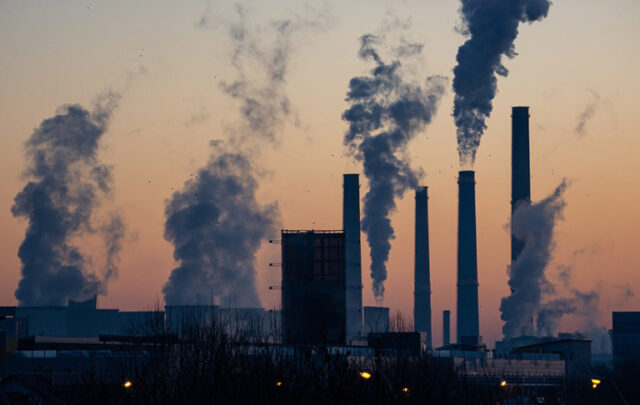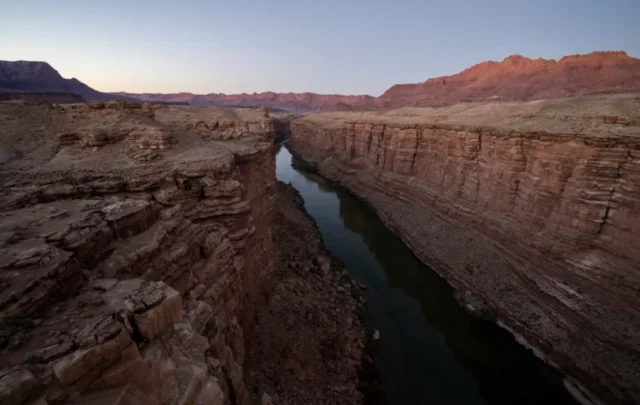Click on the headline (link) for the full text.
Many more articles are available through the Energy Bulletin homepage
“After Peak Oil” conference at Johns Hopkins March 12
Johns-Hopkins Center for Public Health preparedness
CONFERENCE OVERVIEW
This conference, sponsored by the Johns Hopkins Bloomberg School of Public Health Center for Public Health Preparedness, will address the linkages between peak oil, climate change, our built environment, and the public’s health. Special focus will be paid to identifying the consequences as well as envisioning solutions and building resistance to what will be a great threat to public health.
FEATURED SPEAKERS
Rep. Roscoe G. Bartlett ‐ Congressman Bartlett has demonstrated his leadership and his concern about peak oil by becoming a founding member of the Congressional Peak Oil Caucus. As one of three scientists in the Congress, Dr. Bartlett is also a senior member of the Science Committee and specifically uses his science knowledge on the Energy and the Environment as well as the Research and Science Education subcommittees.
Howard Frumkin, MD, MPH, DrPH – Dr. Frumkin, Director of CDC’s National Center for Environmental Health, considers Peak Oil a major threat to the public’s health. He recently coauthored a comprehensive article on the topic in the January issue of Public Health Reports titled Energy and Public Health: The Challenge of Peak Petroleum.
REGISTRATION
Registration is free, but required. Please visit the Johns Hopkins Center for Public Health Preparedness (CPHP) to access the conference agenda and online registration, http://www.jhsph.edu/preparedness/events/eventscalendar.html. You may choose to participate in this event “in‐person” or via “web cast.”
Moderator: Virginia Caine, MD
Health Officer, City of Indianapolis
American Public Health Association, Past President
Speakers:
How Peak Oil, Climate Change, The Built Environment and Ecosystem Degradation Are Related
Brian Schwartz, MD, PhD
Johns Hopkins Bloomberg School of Public Health
Evidence For Peak Oil
Honorable Roscoe Bartlett, PhD
U.S. Congress, House of Representatives, 6th District, Maryland
Energy Inputs Into the World Economy and Peak Oil’s Implications for This
Stuart Chaitkin, MA
Johns Hopkins Bloomberg School of Public Health
Applying a Public Health Framework to the Health Implications of Peak Oil: The View of NCEH
Howard Frumkin, MD, MPH, DrPH
Centers for Disease Control and Prevention
Economic and Societal Impacts of Peak Oil
Cindy Parker, MD, MPH
Johns Hopkins Bloomberg School of Public Health
An Economist’s View of Peak Oil
Matthew Roberts, PhD
Ohio State University
Impacts on Health Care and Public Health
Dan Bednarz, PhD
Energy & Healthcare Consultants
Impacts on Food and Agriculture
Robert Lawrence, MD
Johns Hopkins Center for a Livable Future
Implications for Disaster Preparedness and Response
Daniel Barnett, MD, MPH
Johns Hopkins Bloomberg School of Public Health
Envisioning the Future
Lillian Shirley, RN, MPH, MPA
Director, Multnomah County Health Department, Oregon
(16 February 2009)
Crude Cassandra (Forbes covers Simmons)
Christopher Helman, Forbes
As the price of petroleum plunges, the prince of Peak Oil finds himself a contrarian again.
—
Matthew Simmons has given 30-plus speeches in the past year, to audiences as diverse as the Pentagon and the Colorado School of Mines. One talk was tortuously titled: “Quo Vadis Energy? (Will Dawn Follow Darkness as Twilight of Energy Fades?)” Short answer: No. Simmons’ message is always some variation on the global implications of Peak Oil–that point after which global crude supplies wane, prices soar and shortages spur geopolitical strife.
The Ukraine-Russia gas tiff is a first taste of the transnational energy disputes to come. Simmons believes Moscow’s saber rattling is political cover for a more serious problem: a shortage of gas in Gazprom’s pipeline system. “This is really serious stuff. We’ve had a peak in Russian gas. Next year Europe is toast. Cold toast.” Could he be right? Chief Executive Alexei Miller stated last July that Gazprom’s output had flattened out below 2006 production levels. Russia is already importing gas from the central Asian “Stans” and exporting it to Europe.
Peak Oil zealots eat this stuff up. As crude climbed to $147 a barrel last year, Simmons won lots of converts. But prices have since fallen 75%; OPEC has slashed output; oil companies are laying off workers and mothballing drilling rigs at a rate not seen in a decade. The market signals oodles of oil. Can’t we put Peak Oil to rest?
No way, says Simmons.
(11 February 2009)
Take Peak Oil seriously – it’ll be here much sooner than you think
Cathal Kelly, The Star (Toronto)
No longer the purview of anti-social types, experts warn we must embrace a massive lifestyle change
—
While panic is not the prescription, experts are warning that the time to begin taking Peak Oil seriously is past.
“It’s not about believing. It’s about facts,” said Gord Miller, Ontario’s environmental commissioner. Miller has been warning about Peak Oil for years. He thinks we hit peak around early 2007.
“If we’re not there, we’re awful close,” said Dave Hughes, a geoscientist who once ran Canada’s national coal inventory.
Peak Oil doesn’t mean we have run out of the stuff. It means that we have crested the top of a bell curve of supply. Then it’s a roller-coaster ride down. Depending on who you ask, that ride will either be slow and uncomfortable or teeth-rattling and destructive.
“Depletion is taking somewhere between 5 and 6 per cent of (existing) world oil production per year,” said Hughes. “The reason that oil price is where it is today is that the economy has reduced demand.”
No one has found a major new oil field since the 1960s. It’s getting harder and more expensive to bring up the oil we know is there. All these signs point toward the peak.
What happens now?
The first stage is price volatility, a little like the $100-per-barrel drop we’ve seen in less than a year.
(15 February 2009)
Threat of gas price rise as reserves run dry
Geoffrey Lean, Independent (UK)
Pipeline breakdowns and cold weather leave yawning breach in nation’s energy security
Britain faces an energy crisis next month as vital gas reserves run dry, top energy analysts warn. The unprecedented emergency, which exposes a gaping hole in the country’s energy security, is expected to lead to sharp price increases.
Centrica, which owns British Gas, told The Independent on Sunday late last week that, on present trends, its main reserve would be totally depleted in a little over three weeks. And though extra gas can be imported from Norway and the Netherlands to make up any shortfall, serious breakdowns have hit pipelines from both countries in the past week.
The crisis reveals an extraordinary failure to plan for the future as supplies of gas from the North Sea have run down, turning Britain into an importer of the fuel. Though now dependent on overseas supplies, it keeps only about a quarter as much gas in reserves as France, Germany and Italy, making it uniquely vulnerable to shortages and price hikes.
Three-quarters of the country’s reserves are stored by Centrica in an old North Sea gas field, called Rough, some 9,000ft below the seabed off the East Yorkshire coast. Surplus fuel is injected into the reservoir in the summer when demand is low, and withdrawn between October and late March.
(15 February 2009)





